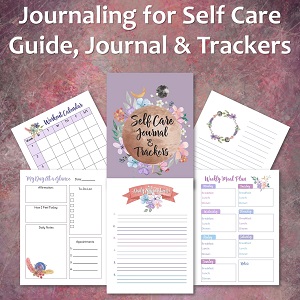 We often hear the word resilience as a quality to be admired, but what does it really mean? Why is it important, and how can you cultivate it within yourself?
We often hear the word resilience as a quality to be admired, but what does it really mean? Why is it important, and how can you cultivate it within yourself?
Resilience, or psychological resilience, can make all the difference between success and failure. It can help you lead a happy life in which you are able to look on the bright side no matter what happens, even when you experience serious issues.
Resilience is a state of mind. It refuses to be defeated. A resilient person is strong and self-confident enough to feel like they can cope with whatever life throws at them without falling apart.
Does this sound like you? Or do you wish you could be more resilient? In this guide, we will cover what resilience is, why it is important, and how to develop it in yourself and others – both at home and in the workplace.
So let’s get started with a working definition of what resilience is and why it is an important characteristic to possess.
What is Resilience?
According to the Merriam-Webster dictionary, resilience can be defined as, “the ability to recover from or adjust to misfortune or change.” For example, “The rescue workers showed remarkable resilience in dealing with the difficult conditions.”
Some people seem to be able to cope with even the most difficult conditions without complaining, giving up, or getting depressed and upset. What most people would consider to be disasters, such as a hurricane and all the damage it causes, a resilient person will take in their stride. They will be upset, naturally, but they won’t let their emotions take over at the expense of logic and all the practical things that need to be done to deal with the situation.
Resilience is a strong ability to cope and adjust to new situations, even difficult ones, as they happen. A resilient person can get back to normal quite quickly after an illness, or adjust to a new normal, such as a new set of circumstances that arise as a result of a death in the family, divorce, and so on.
We all have to face difficult situations in life when they arise, but resilience means not allowing them to paralyze you, or running away from them. Rather, it is an active process of understanding that you have choices in every situation, and trying to make the smartest ones that will lead to a happy or contented life once more.
Now that we’ve covered what resilience is, let’s look at the kinds of situations in which resilience can be very useful.
What Types of Situations Require Resilience?
Resilience is a useful character trait that increases with age. When we are young, we learn over time that we can’t get everything we want. We also discover that bad things happen to good people, and with each challenge, we learn how to deal with the bad as well as the good in life.
For example, it’s nice to win when we play a game, but chances are we can’t win every time. Can we shrug off a loss as no big deal, or get upset about it and be a sore loser? Or want to quit entirely? Think about Michael Phelps. He is the greatest Olympian of all time, but we’re pretty sure even he has lost a few races on the way to getting there. However, he kept on going for not one, two or three, but FIVE Olympic games.
In fact, his first games when he was 16 could well have been his last, since his performance was less than impressive. But he has shown persistence and resilience in the face of tough times throughout his career that would have made others who were less resilient give up and retire.
We would all love to get 100% on every test at school, but it’s often when we make mistakes and get a less than perfect score that the real learning occurs.
As we grow up, we get exposed to more and more situations in which we have choices about what to do. Supportive parents will give advice and encouragement in order to increase our ability to think independently and develop resilience.
“Helicopter” parents who constantly hover over their children, and/or try to protect or shield them from anything bad in life, obviously care about their kids. However, they may be doing them a severe disservice by not allowing them to be exposed to situations that could develop and improve their resilience.
We can probably remember big events in our lives, such as a pet dying or losing a loved one, changing houses, or a parent becoming sick. We might also remember seeing someone being bullied and needing to decide what to do in that situation. Did we just walk away, pretending it wasn’t happening? Did we run to get a teacher or other adult? Or did we try to stop the bullying then and there because we had confidence in ourselves and knew it was the right thing to do?
Sometimes our good actions don’t always have the effect we had hoped for. Did you ever have a situation in which you tried to do the right thing, but it backfired? Did you consider you had failed? Or was it a teaching moment in which you learned how to deal with things better the next time something similar happened?
Being resilient does not mean being perfect. It doesn’t mean being free of difficulties or worries. It is only natural to feel sad and pained if something major happens in your life. What being resilient does mean is being able to find a road back to emotional stability and a happy life rather than allowing the event to cripple you to a point where you find it hard to move on.
Resilience is all about making active choices and following through to achieve your goals. For example, if you want to go to a great college, you need to follow through by getting good grades.
What happens if you don’t? You might not get into your first choice of college, but you keep trying. You don’t give up completely just because of one setback.
You might wish to get a promotion at work, but seem to be hitting a glass ceiling all the time. In this case, there are several things you can do.
- Quit in a huff
- Give up and look for another job elsewhere
- Assess your performance honestly to see where you might be lacking
- Take on a new project that could make a real difference to the company
- Get more training in particular areas where you feel you could be stronger
- Start your own business in order to use all of the skills and talents you feel are going to waste in your current position
…and so on.
As you can see, there are many different choices in this situation. In some cases, doing several at the same time can add up to big results. The one thing that a resilient person does not do is give up and do nothing, or act as though their entire life was over.
An honest self-assessment could lead you to an entirely new career path you might not have thought of. Getting more training can also open new doors. Starting your own business will always involve some sacrifice in the beginning, such as giving up TV and lazy weekends.
However, it could mean more money and a more comfortable financial set of circumstances, so that if you get a $1,000 car repair bill all of a sudden, you won’t need to worry about it because you have the cash in the bank.
There are many difficult situations in life that require resilience, such as:
- Sickness
- The death of a loved one
- Divorce
- The break-up of an important relationship
- The loss of a job/being laid off, or fired
- Money issues
- An accident
- A natural disaster
- A house fire
In many instances, it isn’t a case of IF, but WHEN a difficult life event will arise.
That being the case, the more you can do to prepare yourself mentally for these kinds of challenges, the more you can develop your resilience. Let’s look in the next section at how you can become more resilient.
How can You Become More Resilient?
There are a number of factors that can contribute to resilience. In this section, we will discuss several of the most important ones. If you already possess them, great. If you don’t, it’s time to work on them.
A Close Family and Community
Studies have shown that one of the primary factors in developing resilience is having caring and supportive relationships within the family, and outside of it as well. Solid role models you can rely on will help. So too will having a network of people you trust who will offer encouragement without trying to smother you.
This kind of support gives you the self-confidence to bounce back when times get tough. It can also take you out of yourself as you care for others in return, being the strong one when circumstances present themselves and need to be dealt with calmly and practically.
Goal-Oriented
Resilient people set goals for themselves, then take steps to achieve them. They follow through. They also tend to be good communicators who say what they mean and mean what they say.
They are practical, but also see the potential in situations and people. They don’t have tunnel vision, but rather, an image of what they wish their future to be like. That image drives them towards success and prevents setbacks from making them give up completely.
They accept that change is a part of living, and that even if one door closes, another will open. They aren’t afraid to make the most of opportunities that arise. Even if the make a wrong decision or “fail”, they learn from their mistakes and move on, usually stronger than before.
A resilient person knows the difference between things they can change and things they can’t, and applies their energy accordingly. They don’t stick their head in the sand, but face their problems head on. They don’t keep trying the same ineffective strategy over and over again hoping they will eventually get a different result.
Emotionally Aware and Stable
Resilient people also tend to be emotionally aware. They are able to manage strong feelings and impulses without being overwhelmed by them. They often possess high emotional intelligence as well, understanding the thoughts, feelings and difficulties others are going through.
They go out of their way to help people, confident in their own ability to give assistance to others in some way. They don’t just give a fish; they teach people how to fish so that they too can be resilient.
Resilient people have a positive outlook on life, not a negative one. They don’t see problems; they see challenges that can be overcome. They look forward to the future with confidence, secure in the knowledge that they have faced tough times before and will be able to do so again whenever they arise.
Studies show that those with a sense of humor also tend to be more resilient. They can find something amusing in even the toughest situations. The laughter removes stress and helps them soldier on.
Good Self-Care
Resilient people also practice good self-care. They don’t neglect themselves to the point where they are running on an empty fuel tank. They eat right, exercise, manage stress, and allow themselves some personal time and space.
They understand that if they don’t look after themselves first, they won’t be able to care for others. They want to be their best self and live their best life. They set themselves self-improvement tasks that they follow through with.
Able to Learn and Grow
Resilient people look for opportunities to learn and grow. They trust their instincts and visualize their actions as being a path to success. Many resilient people meditate, journal, keep a vision board, and tackle their to-do lists like pros.
They are good at time management and are dependable and responsible. This in turn means less stress and less difficulty because they are not causing themselves problems through, for example, procrastination and other bad habits.
In Control of One’s Life
Above all, a resilient person feels that they are in control of their life no matter what happens. They might not have a choice about what happens, but they do have a choice about how to react to it. They explore their choices in an effort to make smart decisions.
The modern world is full of stressful situations, both great and small. From being cut off on the highway on our way to work, to the loss of a job or death of a loved one, events happen to us every day that we need to cope with. Freaking out will rarely help. Neither will burying your head in the sand and hoping it will go away.
Resilience is all about making an active decision and sticking to it. If someone cuts you off, you have two choices: get angry and perhaps make the situation worse, or decide it’s not worth getting upset about and not dwelling on it.
Similarly, the loss of a job can be devastating to some people, or a golden opportunity – depending on one’s perspective. If you were working 18 hours a day at the job and were never appreciated, being laid off could be the best thing that ever happened to you. It can free you up for all new and even better opportunities. If you act like it’s a disaster and the end of the world, you will only be making a tough situation worse.
Similarly, we hate to see anyone we care about suffer, but you can either get upset, or get information about the situation and see what your options are. Your “Oh, no!” can become, “Yes, this is tough, but I am going to do my best to deal with this.”
Getting Support
In times of crisis, you can go it alone, or you can put together a support team and lean on them as needed. You might have a mentor, coach or role model who can help guide you through the situation. Or, you can learn all you can and come up with an action plan for dealing with whatever situation has arisen.
Whenever something challenging happens to us, we can feel as if we are the only person in the world that it has ever happened to. The truth is, it has probably happened to many other people as well. Examples include as divorce, the loss of a loved one, a fire destroying our home, and so on. Fortunately, there are trained professionals who have experience dealing with these issues.
There are also ordinary people who have faced the same issues and come out the other side having learned a lot of valuable lessons along the way. You might be able to connect with them in person via local support groups, or meet up with them online and share experiences.
For example, it can be really tough to be diagnosed with a serious illness, such as cancer. Going online to learn as much as you can about your condition and treatment options is often one of the best ways to get a good outcome. Reading successful treatment stories can give you a positive outlook, which can lead to a better outcome.
If one of your family members becomes ill, you might suddenly be thrust into the role of a caregiver, a gatekeeper who learns about all of the aspects of the condition, and a cheerleader as you try to put a brave face on things for the sake of your sick loved one. All of this can lead to stress and caregiver burnout if you don’t pace yourself and take steps to ensure you get the support you need.
Being resilient does not mean going it alone. It means knowing what you need, asking for it, and doing your best no matter what the situation, through the smart choices you make. Over time, even the toughest situations will become easier because you have developed resilience.
Final Thoughts
Many people think how fortunate some people are because they appear so resilient, and make it seem so easy to cope with even the worst times. They look as though they are always in charge, and have their act together no matter what life throws at them.
The truth is that resilience is a set of skills and a mental attitude you can develop if you are willing to put in the effort to work on your preparedness in the face of tough situations. Only by dealing with challenges can you rise to them, and become a more resilient person able to succeed in life no matter what the odds.
To your resilience!




